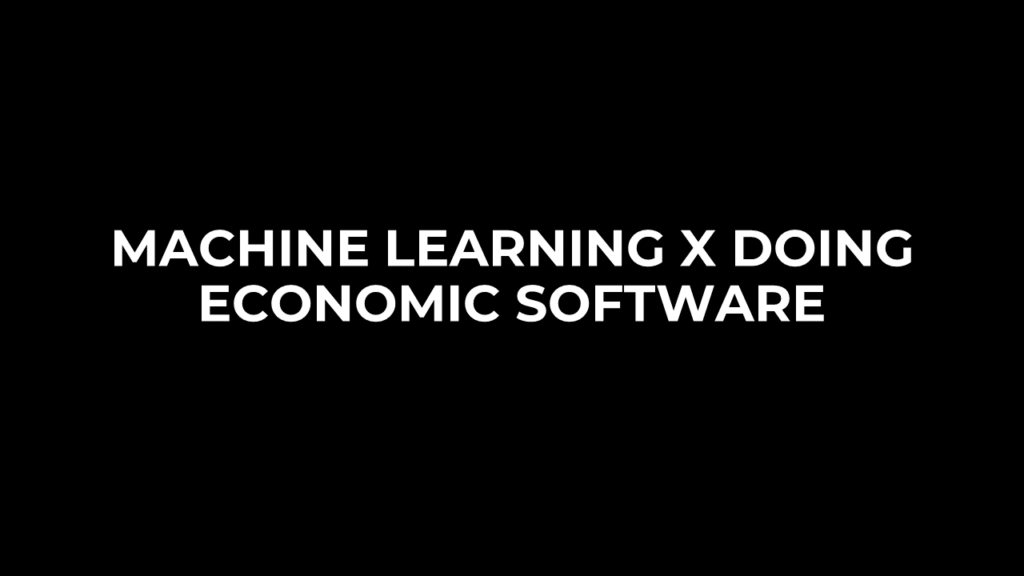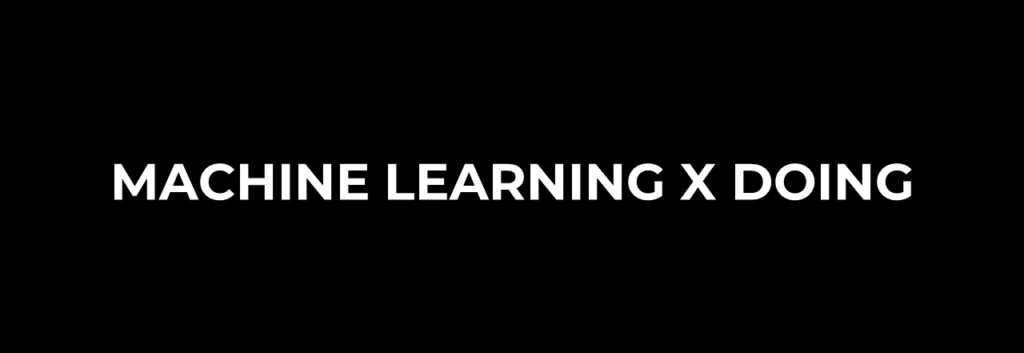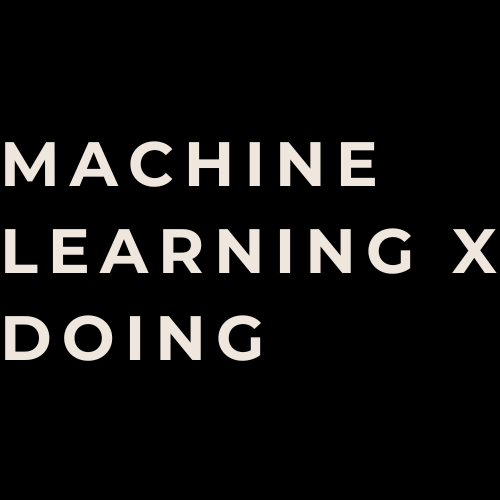
Machine Learning X Doing has completed new research to be published by in a book chapter by Cambridge University Press in June 2025. The book, The Cambridge Handbook on the Economics of Terrorism is here.
The paper, by Machine Learning X Doing founder Kweku Opoku-Agyemang, introduces a unified approach to understand the economics of terrorism and social media.
From the book description:
“With contributions from many leading figures in this fast-growing and important field, this book offers an accessible yet comprehensive collection of the economic analysis of terror.”
RESEARCH
Recent Work.
Kweku Opoku-Agyemang has new research on combining randomized controlled trials with reinforcement learning from human feedback. Read the paper here.
This paper introduces an approach where a technique commonly used in modern video games and large language models, generates the candidate interventions and RCTs (randomized controlled trials) test them experimentally. The approach executes traditional RCTs, cluster trials and adaptive experiments.
Kweku Opoku-Agyemang (2023). Machine Learning X Doing Working Paper Class 12.
Causal Inference and Natural Experiments in Self-Driving Cars: A Dynamic Causal Graph Approach
Kweku Opoku-Agyemang
Machine Learning X Doing Working Paper Class 31.
Simplicity in Video Games: Theory and Applications
Kweku Opoku-Agyemang
Machine Learning X Doing Working Paper Class 30.
Computational Ethics
Edmond Awad, Sydney Levine, Michael Anderson, Susan Leigh Anderson, Vincent Conitzer, M. J. Crockett, Jim A.C. Everett, Theodoros Evgeniou, Alison Gopnik, Julian C. Jamison, Tae Wan Kim, S. Matthew Liao, Michelle N. Meyer, John Mikhail, Kweku Opoku-Agyemang, Jana Schaich Borg, Juliana Schroeder, Walter Sinnott-Armstrong, Marija Slavkovik, and Josh B. Tenenbaum.
Trends in Cognitive Sciences, Volume 26, Issue 5, Pages 388-405. Cell Press.
Livestream: Contextual Bandits Meet Regression Discontinuity Designs
Kweku Opoku-Agyemang
Machine Learning X Doing Working Paper Class 1.
Economies of Score: Scope Economies from Feature Complementarities
Kweku Opoku-Agyemang
Machine Learning X Doing Working Paper Class 4.
Subspace Designs and Directed Acyclic Graphs: An Approach to High-Dimensional Causality
Kweku Opoku-Agyemang
Machine Learning X Doing Working Paper Class 25.
Super Dummy Variables
Kweku Opoku-Agyemang
Machine Learning X Doing Working Paper Class 6.
Generalized Transformers
Kweku Opoku-Agyemang
Machine Learning X Doing Working Paper Class 7
Randomized Controlled Trials from Reinforcement Learning with Human Feedback
Kweku Opoku-Agyemang
Machine Learning X Doing Working Paper Class 12
Reinforcement Learning from Human Feedback via Randomized Experiments
Kweku Opoku-Agyemang
Machine Learning X Doing Working Paper Class 14
Chatbot Auctions: How to Use Deep Reinforcement Learning and Transformer-based Language Models to Create and Improve Advertising Markets and Institutions
Kweku Opoku-Agyemang
Machine Learning X Doing Working Paper Class 26
Livestream: Contextual Bandits Meet Regression Discontinuity Designs
Kweku Opoku-Agyemang
Kweku Opoku-Agyemang has new research on causal inference. Read the paper here.
This paper introduces a treatment dummy variable concept for data contexts where the treatment status of an individual is not fully observed or determined by the researcher, but depends on how much the instrument affects the probability of receiving the treatment.
Kweku Opoku-Agyemang (2023). Machine Learning X Doing Working Paper Class 6.

Kweku Opoku-Agyemang has new research on app platform economies. Read the paper here.
Economies of scope are a key economic result from the late 1970s. To introduce a novel generalization of economies of scope for the app market and virtual reality era, that also works for platforms of all kinds, the paper develops a new model of average cost reductions based on enabling products to have multiple features or functions.
Kweku Opoku-Agyemang (2023). Machine Learning X Doing Working Paper Class 4.

Kweku Opoku-Agyemang‘s joint research on Computational Ethics is now published by Trends in Cognitive Sciences. Read the paper here.
The paper combines algorithmic computation with human moral thinking for mutual benefit.
Edmond Awad, Sydney Levine, Michael Anderson, Susan Leigh Anderson, Vincent Conitzer, M. J. Crockett, Jim A.C. Everett, Theodoros Evgeniou, Alison Gopnik, Julian C. Jamison, Tae Wan Kim, S. Matthew Liao, Michelle N. Meyer, John Mikhail, Kweku Opoku-Agyemang, Jana Schaich Borg, Juliana Schroeder, Walter Sinnott-Armstrong, Marija Slavkovik, Josh B. Tenenbaum. (2022). Trends in Cognitive Sciences, forthcoming.
RESEARCH DISCOVERIES
Machine Learning X Doing Research.
Machine Learning X Doing Research Highlights.
MLXD WORKING PAPER 1
Livestream: Contextual Bandits Meet Regression Discontinuity Designs.
Kweku Opoku-Agyemang.
Technology firms of all kinds face an unwieldy overflow of data in the twenty-first century: a constant waterfall of information. Innovative research methods can help unlock their full potential. In this working paper, Kweku Opoku-Agyemang presents statistical causal inference techniques for such datastreams.



“From social media to streaming platforms and smartphones, the exciting thing about the data revolution is that it provides the opportunity for decision makers to be better-informed than ever before.” Kweku observes. The updated version of the paper is here.
PROPOSAL INVITED, NATURE MACHINE INTELLIGENCE | MLXD WORKING PAPER 2
The Economics of Human-Centered Artificial Intelligence.
Kweku Opoku-Agyemang.
The rise of machine learning and the need for algorithmic fairness offers new opportunities for engagement with economics. Kweku Opoku-Agyemang discusses his perspective in a working paper.
“The lines between AI and the economy are increasingly blurred”, Opoku-Agyemang notes.
CVPR 2021 WORKSHOP. BEYOND FAIRNESS: TOWARDS A JUST, EQUITABLE AND ACCOUNTABLE COMPUTER VISION
Kweku Opoku-Agyemang.
From facial recognition to self-driving cars, image data is an increasingly important part of our lives and we must better understand how it can be a force for good. Kweku Opoku-Agyemang presented at the CVPR 2021 Beyond Fairness Workshop on how computer vision can benefit from causal inference methods traditionally used in the economic and social sciences.


“The goal is for statistical context of image data required for better decisions.” Kweku notes. The paper is here.
MLXD WORKING PAPER 3
The Education Economics of the Future of Work.
The future of work is one of the most profound economic events of our times, with AI poised to impact productivity and innovation in every corner of society. In this working paper, Kweku Opoku-Agyemang sheds light on this critical issue.

“It’s encouraging to see the recent progress in AI, but the best is yet to come.” says Kweku.
Featured Research.
Machine Learning X Doing Working Paper Class.
CLASS /klas/
A set or category of things having some property or attribute in common and differentiated from others by kind, type, or quality.

MLXD WPC 1
Datastreams: Statistics and Causal Inference in Real-Time
Kweku Opoku-Agyemang

MLXD WPC 2
The Economics of Human-Centered Artificial Intelligence
Kweku Opoku-Agyemang

CVPR 2021 WORKSHOP
Econometric Causal Inference for Computer Vision: Image Natural Experiments Inspired by the Social Sciences
Kweku Opoku-Agyemang

MLXD WPC 3
The Education Economics of the Future of Work
Kweku Opoku-Agyemang

MLXD WPC 4
Economies of Score: Scope Economies from Feature Complementarities
Kweku Opoku-Agyemang

MLXD WPC 5
Statistical Causal Inference with Topological Data Analysis
Kweku Opoku-Agyemang

MLXD WPC 6
Super Dummy Variables
Kweku Opoku-Agyemang

Advanced Scientific Computing Research (ASCR) Workshop on Cybersecurity and Privacy for Scientific Computing Ecosystems, November 3-5, 2021.
Blockchain and the Scientific Method (2021)
James Evans, Kweku Opoku-Agyemang, Krishna Ratakonda, Kush R. Varshey and Lav R. Varshey

DevOps meet AIOps. Extending next-level AI across every team.
Solve your problem. Solve your organization.


About our founder.
Kweku Opoku-Agyemang, Ph.D., is founder of Machine Learning X Doing. He is a former postdoctoral fellow at the University of California, Berkeley in economics, former computer science postdoctoral researcher at Cornell Tech and visiting scholar at UC Berkeley Mechanical Engineering. He has advised big tech scientists, presented to government officials from 12 countries and others.
A former session Chair at the Canadian Economic Association, Kweku believes that his next-generation Machine Learning X Doing approach can help organizations and countries to do better by their people by meeting or exceeding their potential and taking their culture to its real potential.

